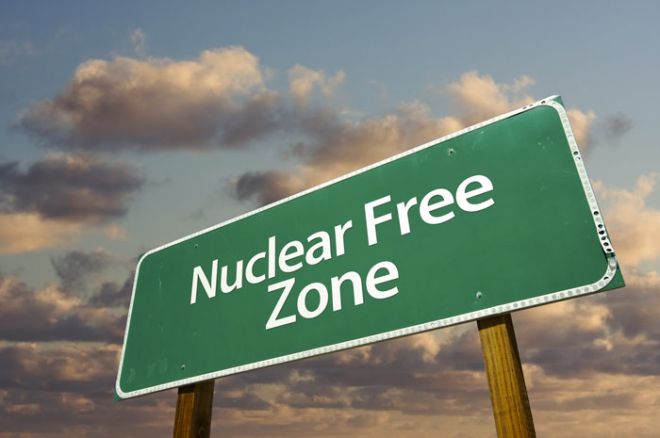Making the Middle East Nuclear Weapon Free
Published on August, 08 2022
by Odile Hugonot Haber and Tura Campanella Cook
Leadership Team Members, Middle East Peace and Justice Action Committee
September 2022
Five nuclear weapon free zone treaties signed between 1967 and 2006 have succeeded in making 60% of the planet free from nuclear weapons. We urge support for a similar zone to be established in the Middle East.
In 1974, Egypt and Iran began discussions in the United Nations (UN) for a Middle East Nuclear Weapon Free Zone. Support has since grown to 20 Middle Eastern and Arab nations.The goal has become a Middle East Weapons of Mass Destruction Free Zone (Middle East WMDFZ) including nuclear, chemical, and biological weapons. Israel has had nuclear weapons since the 1960s, but has not signed the Treaty on the Non-Proliferation of Nuclear Weapons (NPT) allowing inspections of its facilities. Israel has participated in regional conferences on this issue, but has refused to enter into these discussions at the UN, citing security issues. The United States has not used leverage to urge Israel to sign the NPT.
At its 33rd Triennial Congress in Brisbane during July 2022, the Women’s International League for Peace and Freedom adopted a Resolution supporting a Middle East WMDFZ and urging WILPF members and civil society to publicize this effort for regional peace.
The American public in general is not familiar with nuclear weapon free zones, their effectiveness, or the ongoing advocacy for a Middle East WMDFZ. Sixty years of milestones are covered in an interactive timeline from the Middle East WMDFZ Project of the UN Institute for Disarmament Research. The Middle East WMDFZ Project goals include:
- Supporting new thinking on regional security, drawing on lessons from other regional nuclear free zones
- Collecting new ideas and developing new proposals on how to move forward
- Fostering inclusive dialogue among experts and policymakers on regional security and the zone
We urge you to become involved!
- Familiarize yourself with the subject and subscribe to newsletters from Reaching Critical Will
- Discuss the Middle East WMDFZ in WILPF branches
- Reach out to religious institutions, educational institutions at the primary through college levels, and other areas of civil society
- Show documentaries and pressure the media to cover the subject
- Express support to UN representatives
- Urge members of Congress to reduce all appropriations for weapons and to endorse the UN process for a Middle East WMDFZ
- Establish a national WILPF subcommittee to promote the Middle East WMDFZ
- Support our WILPF sisters in the Middle East and North Africa in their work for peace
For more information or to join us, contact MEPJAction@wilpfus.org



